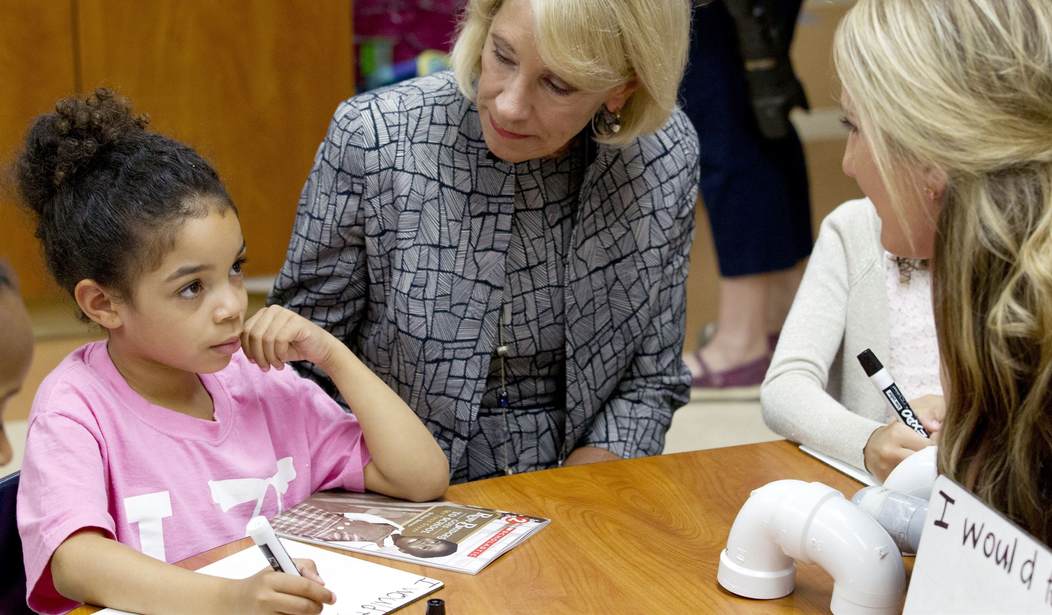To her credit, before she veers off the reservation, Gina Rippon lays out more or less accurately the argument against her own position that women generally are more interested in people and men are more interested in things.
Via Nature:
One of the areas that I’ve been interested in is the claim that if you look at allegedly the most gender-equal countries*, depending on for example, measures that the World Economic Forum takes every year. So think of Scandinavia and Iceland, etc. In those allegedly gender-equal countries, there is proportionally a much larger under-representation of women in science.
(*Notice that Rippon smuggles “allegedly” into her description of Scandinavian countries as “gender-equal.” There is no justification to put “allegedly” in quotes because, by all feminist metrics, these countries are legally and culturally totally equal, if not matriarchal.)
So this is known as the gender equality paradox, the idea that you level the playing field, and I use that term advisedly, because that’s how it’s been interpreted. You’ve got a nice level playing field for people in science, males and females.
And yet, women are turning away from science, or they’re choosing not to do science, etc. And this has nothing to do with competence, because the measures they take indicate that the males and females are scoring equally well on the kind of entrance exams that might be needed.
And we’re looking at the advent of a newer, what I call a new essentialist argument. Whereas moving away from the competence argument, saying women haven’t got the right kind of brains, they’re starting to say, women have biologically determined preferences.
And this is where we get that kind of “people versus things” choice emerging. And that’s why they’re choosing not to do science. So the idea is that, as I say, there is a level playing field, and yet women are somehow not becoming represented in science.
The feminists have a problem. No matter how hard they try to push women into the STEM fields, they appear to just not be interested. In other words, under conditions of full equality and then some, women still don’t embark on careers in math or science at the same rate as men.
To biological denialists who insist there is no difference between the male and female disposition, there must be some unseen variable that’s oppressing women.
What is Rippon’s retort to the “gender equality paradox”?
My counter to that is the idea of the outside-in model and saying just how level is the playing field?
If we know that negative social experiences will change the brains of anybody who encounters those in quite dramatic ways, very often in terms of inhibition….
So I think we’ve got a model here of a better explanation, or certainly an explanation that should be looked at, in terms of cultural expectations. So it’s not that there’s something about the individual, which is turning them away from science.
It’s something about the culture, which is when an individual looks at that culture, will they be getting messages “Are there people like me in those sciences?” So if you look at role models, for example, and you’re looking at physics, or robotics or computer science, it’s very unlikely that you will see many people like you…
And you can also track all sorts of measures of success, or the reward systems or the promotion systems in different organizations, and find quite clear evidence of gender gaps.
So people who are trying to look at diversity and inclusion initiatives within organizations really need to be aware that the diversity aspect isn’t enough, it’s the inclusion aspect, which is really important, because our brains are wired to make a social. So if we’re feeling that we’re approaching an organization where we’re not going to be included, we’re not going to be rewarded, we may be constantly bombarded with what might be called banter about what people like you can and can’t do, then it’s much more likely that these people withdraw from that situation, they will not choose it. [emphasis added]
It’s not “something about the culture.”
The idea that women are not “included” or “rewarded” for pursuing STEM careers is ludicrous. Not only do women perform better in academia than men, but the government regularly institutes various social engineering projects to recruit women.
Women in STEM are lauded as heroes for the feminist cause.
Universities trip over themselves to recruit women to their STEM programs.
There is only positive social reinforcement for women in science in the West, not negative. This whole narrative that women aren’t properly valued in the labor market is total nonsense. The totality of evidence indicates that women just aren’t that into STEM, and no amount of social engineering will make them interested — a reality that the corporate state will spare no expense in waging war against for the sake of “equity.”









Join the conversation as a VIP Member